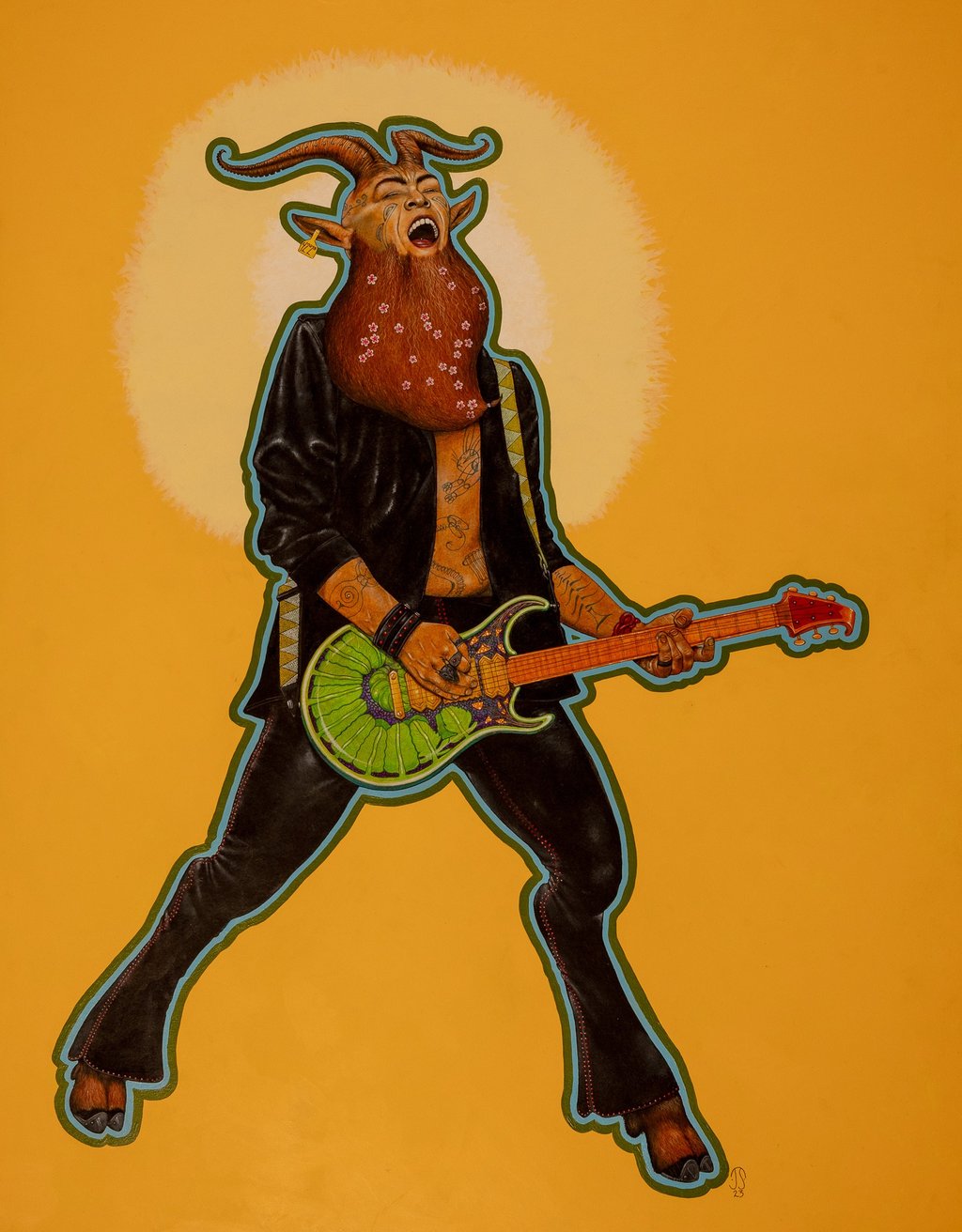

Pan
24x30 Colored Pencil/Acrylic
This is Pan, the Greek musical woodland god of shepherds, flocks, and fertility. He was also a bit of a masculine jerk, but which gods weren't in those days?
Story
The hair metal scene of 1987 should have been perfect for Pan – the excess, the hedonism, the worship of raw masculine energy – but somewhere between his third platinum album with "Satyr's Revenge" and his fourth paternity suit, he realized that being the Greek god of wild nature meant more than just trashing hotel rooms and seducing groupies. The epiphany came during a particularly debauched party in the Hollywood Hills, when he overheard a young fan telling her friend that his music "made her feel powerful, like she could take on the world." Pan had always thought his job was to embody primal masculinity, but maybe – just maybe – his true calling was to help people connect with their own untamed nature, regardless of gender. The transition wasn't easy; his bandmates in Satyr's Revenge didn't understand why he wanted to write songs about environmental activism and emotional authenticity instead of just sex and drugs.
By 1991, Pan had embraced the grunge movement with the fervor of a god discovering his true purpose. He traded his leather pants and teased hair for flannel and genuine emotion, forming a new band called "Panic Attack" that channeled his ancient rage into something more honest and raw. The music industry executives were baffled – here was a deity who could have ridden the hair metal wave forever, but instead chose to write songs about toxic masculinity, environmental destruction, and the pain of being disconnected from nature. His signature guitar, painted with swirling green patterns that seemed to shift and grow during performances, became legendary in the Seattle underground. Other musicians whispered that his solos could literally make flowers bloom in concrete, though most assumed it was just really good stage effects.
The transformation reached its peak during a legendary 1993 performance at a small club in Olympia, where Pan's set became an impromptu therapy session for an audience of lost young people searching for authenticity in a world that seemed increasingly artificial. His music had evolved from the shallow machismo of the '80s into something deeper – primal screams that acknowledged both strength and vulnerability, guitar riffs that sounded like forests breathing, lyrics that challenged listeners to reconnect with their wild selves without destroying everything around them. As he'd tell Rolling Stone in their controversial 1994 cover story, "Being a god of masculinity used to mean conquering and consuming. Now it means nurturing the wild spaces – in nature and in ourselves – that make life worth living. Plus, grunge flannel is way more comfortable than leather pants, and my hooves don't sweat as much."